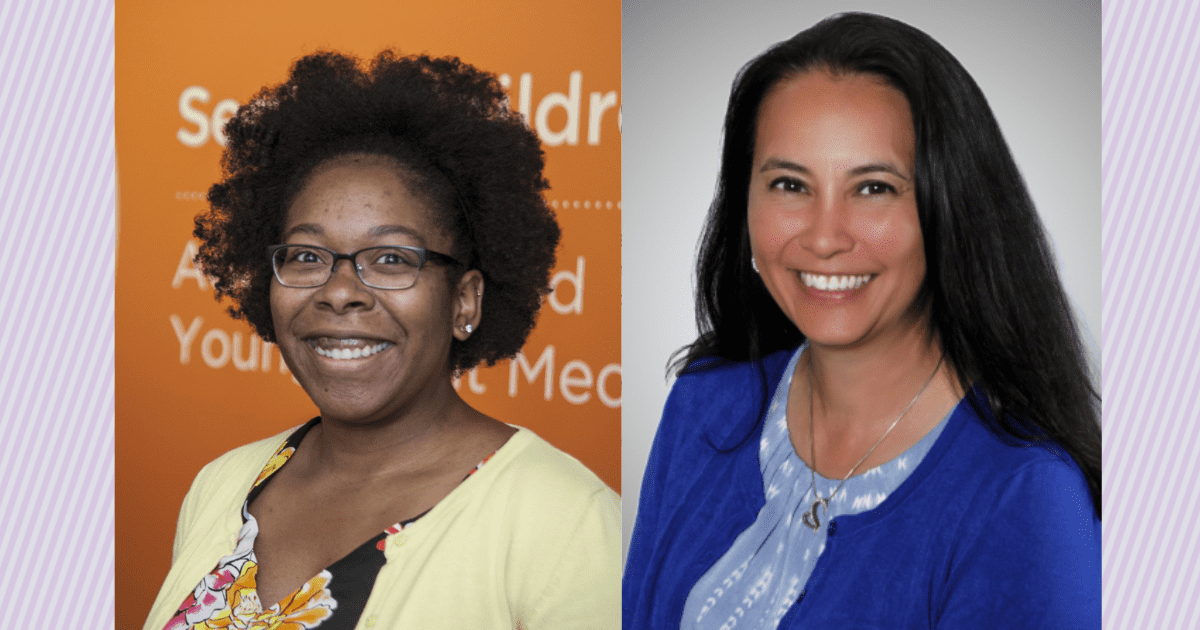Deciding to pursue a career in healthcare is no easy feat — and it can be even harder to advance if you don’t have someone to advise and advocate for you. Here’s how two UW Medicine women — Yolanda Evans, MD, and Bianca Frogner, PhD — are making mentorship in medicine a priority, and how they became notable mentors to other women in medicine.
Nominated by their mentees and peers, Evans and Frogner are the recipients of the 2023 Excellence in Mentoring Women Faculty Award, an ongoing project by the Committee on Women in Medicine and Science, which honors their commitment to cultivating thriving partnerships with their mentees and their dedication to making mentorship matter.
Yolanda Evans, MD
Yolanda Evans, MD, MPH, is an associate professor of Pediatrics in the School of Medicine and the head of the Division of Adolescent Medicine at Seattle Children’s Hospital. In her practice, she cares for various concerns, such as reproductive health, depression, anxiety and eating disorders. Evans was named Seattle’s Top Doctor by Seattle Met Magazine in 2016, and Seattle Top Doctor in 2022 by Seattle Magazine.
As she advanced through her career, Evans noticed a gap in representation. She took the opportunity to step into that leadership role to start the process of addressing these disparities.
“When I was trying to find mentors to help guide me on becoming a physician, there was no one who looked like me or shared a similar background,” says Evans. “As the first in my family to graduate from college, I had no idea what the steps were beyond finishing an undergraduate degree. As I joined academic medicine, there was a similar challenge: there were very few women of color in leadership positions. Representation is so important.”
Evans is energized by the mentorship process, which includes learning what excites others and watching them develop and dive into their interests.
“I’m committed to being a resource for others,” she says. “Seeing how much people grow is exciting!”
As a woman in the medical field, the opportunity to mentor other women is an incredible — and necessary — experience.
“Women in medicine face unique challenges with navigating career demands, family demands, historical power dynamics and hierarchies, and bias,” says Evans. “Mentorship that encourages, sponsors and promotes women faculty is critical for success and for incorporating helpful changes into academic medicine.”
Humbled by and grateful for this award, Evans has one continued goal: to listen more than she speaks.
“By listening, I learn what motivates and inspires a mentee and supports them in career fulfillment,” she says. “I hope each of my mentees is excited to complete their work and feel a sense of value, success and purpose.”
Bianca Frogner, PhD
Bianca Frogner, PhD, is a professor in the Department of Family Medicine at the School of Medicine, the director of the UW Center for Health Workforce Studies and the director of the Primary Care Innovation Lab. She is an expert in health services delivery, health workforce, labor economics, health spending, health insurance coverage and reimbursement, and more. She also has over 150 publications, delivers scholarly presentations around her research and has appeared in media outlets such as CNN and NPR.
She’s also an expert in providing career mentorship for women faculty. Frogner says the invaluable mentorship she received from her senior colleagues throughout her career influenced her to do the same.
“My mentors were generous and giving with their time, created space to explore my wild ideas, had confidence in my abilities and supported me both professionally and personally even during tough times,” says Frogner. “I feel that I can never fully return the favor to my mentors, so instead, I have been trying to pay it forward by mentoring others, using my mentors as inspiration.”
While Frogner mentors people of all genders, as a woman in academia, she describes a feeling of privilege and responsibility to support other women.
“I love seeing and celebrating my mentees when they reach important career milestones, publish papers and get grants,” she says. “Even more rewarding is seeing them excited and encouraged about their future. My heart fills when I hear a mentee say that after our conversation, they now see a path forward where they hadn’t before.”
This feeling of uncertainty is familiar to Frogner, who describes times in her career when she has felt stuck or questioned if she was going in the right direction — and how mentorship was crucial to helping her find her way.
“Sometimes talking with a more senior mentor can help provide perspective on a situation and help you see that what was once a barrier becomes an opportunity,” says Frogner.
Despite the representation and ever-growing inclusion of women in health services research, Frogner explains that too few women in the field are promoted to higher ranks of academia, hold leadership positions, or are recognized as experts. Her work as a mentor is a chance to help create that change.
“My goals as a mentor include staying curious and being proactive in supporting my mentees,” says Frogner. “For my mentees, my biggest hope is that they have the opportunity to build the academic career of their dreams. While not always an easy path — and trust me, there have been some tough moments — I am fortunate to have a job I love. I got here with the support and shared experiences of my mentors. I am thrilled to share what I have learned with my mentees.”
Frogner says that with this award, she has reflected on how fortunate she is to be surrounded by an amazing community of women who inspire her every day.



